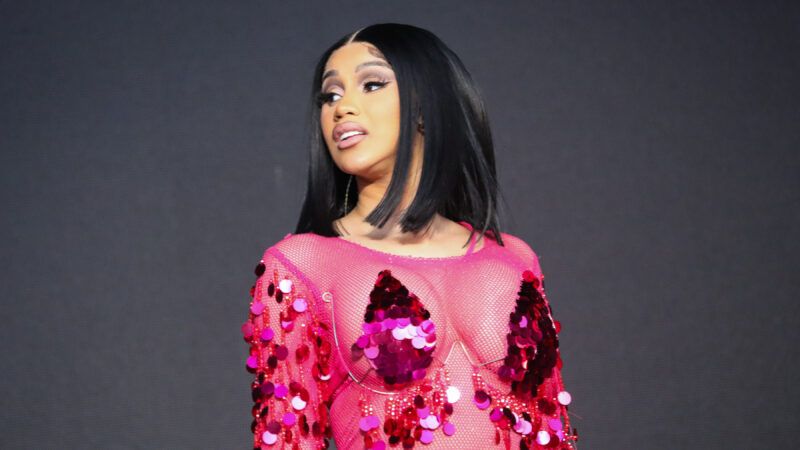Cardi B Delivers Perceptive, Profanity-Laced Analysis of High Home Prices, Rents
The rapper blamed a lack of "motherfucking inventory" for high home prices and rising rents in low-income neighborhoods. She's not the only one.

Grasping a truth that's evaded many a Berkeley housing activist and even the administration of Flordia Gov. Ron DeSantis, rapper Cardi B laid the blame for high housing costs and rents on the lack of "motherfucking inventory."
"The way that the prices soar up, because I'm guessing there's no motherfucking inventory for the homes they're selling right now. No one is gonna try to sell their fucking home," said B in a profanity-laced, sneakily perceptive Instagram rant over the weekend.
The downward pressure that higher interest rates are putting on home prices will offer little relief to homebuyers, the rapper argued, given the dearth of available homes.
"Everyone is like yo when the interest rate is good, is high, that's great because people have to sell their home for less," said B. "Bitch, it doesn't matter if the interest rate is motherfucking high as fuck because there isn't even inventory."
No seriously…I want to know how people are surviving… https://t.co/sodp7YdJTY
— Cardi B (@iamcardib) September 10, 2022
B is right about the relationship between inventory and home prices—although the situation at the moment is a little less dire than it has been in the recent past. Inventory is growing, albeit only at the high-end and from a very depressed baseline.
The latest data from the National Association of Realtors (NAR) shows 1.3 million homes on the market as of July—or about 3.3 months of inventory. That's a marked improvement from January, when the number of homes for sale dropped to 850,000—or 1.6 months of inventory. However, it's below the 1.4 million home inventory in December 2019, on the eve of the pandemic.
Home prices shot up dramatically during 2020 and 2021 when inventory was at its lowest. The average sale price increased from $271,000 in 2019 to $296,000 in 2020, and $350,700 in 2021.
Most of the recent inventory growth has mostly been in the higher end of the market, notes NAR economist Lawrence Yun, saying in a press release that "limited supply at lower price points is hindering transaction activity." He seconded B's analysis that higher mortgage rates contributed to suppressed home sale activity.
Home sales fell by 5.6 percent in July, according to the latest data from NAR. Sales have declined 20.2 percent this year to date.
In her remarks, B also called out soaring rents—which she said were increasing in lower-income neighborhoods.
"The way that the rent has been rising, I just really be wondering how is people fucking keeping up?" she said. "Even in the hoods, even in mice-, rats-, possums-fucking-infested fucking apartments."
The latest CPI numbers show shelter costs have increased 6.3 percent this year.
B's connecting rising rents and higher home prices, particularly in traditionally low-income neighborhoods, tracks with analysis from Mercatus Center Affiliated Scholar Kevin Erdmann.
In a recent paper, Erdmann argues that higher home prices are a product of higher rents—both of which are downstream of restrictions on mortgage financing following the Great Recession. Many would-be homebuyers, says Erdmann, could not get a mortgage and therefore continued to occupy rental housing. Other homebuyers compensated for the restricted credit and suppressed housing supply by buying homes in lower-income, gentrifying neighborhoods.
"That price pressure gets pushed down to the bottom end of the market," Erdmann told Reason last month. "The lower you get in the market, the more you're left with only one option, to pay the higher rent."
This dynamic is worsened by pandemic-spawned supply-chain issues preventing builders from getting their hands on needed materials and pre-existing restrictive zoning regulations in America's most in-demand cities. Both suppress new construction and increase housing costs.
In short, B isn't the only one who should be wondering "how are people surviving?"
Rent Free is a weekly newsletter from Christian Britschgi on urbanism and the fight for less regulation, more housing, more property rights, and more freedom in America's cities.


Show Comments (86)